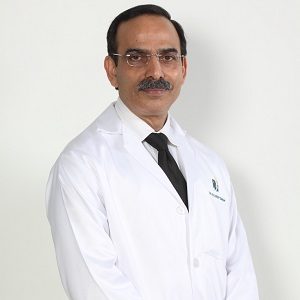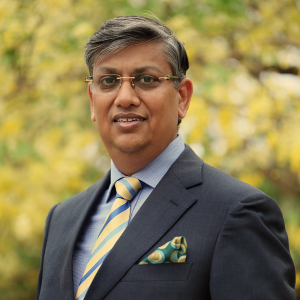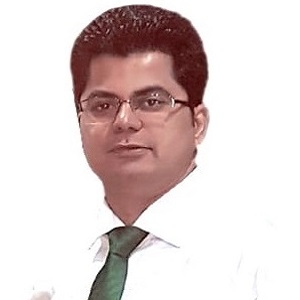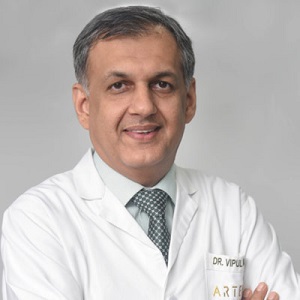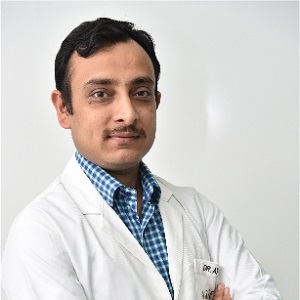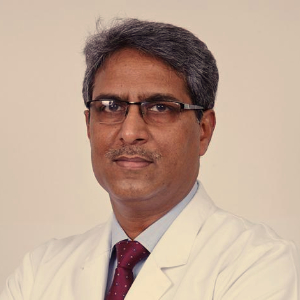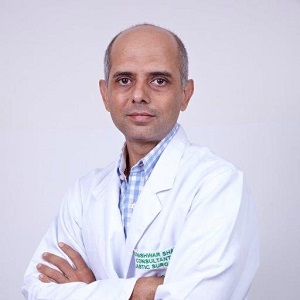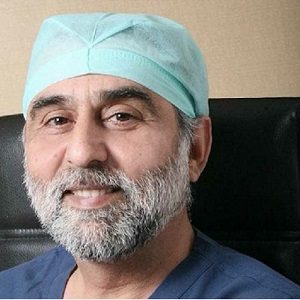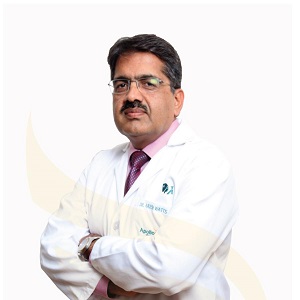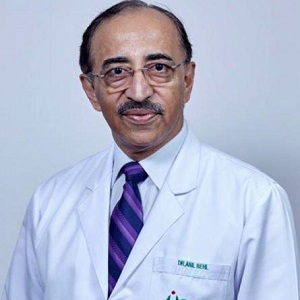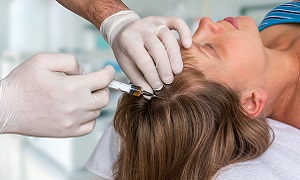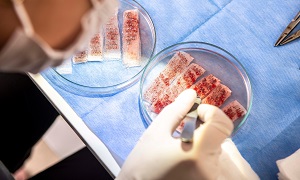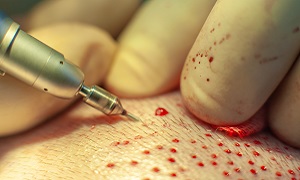Best Doctors in India for Hair Transplant
- Top Cosmetic & Plastic Surgeon | Apollo Hospital, New Delhi, India
- 32+ Years Experience
- Indraprastha Apollo Hospital, New Delhi
Profile Highlights:
- Dr. Kuldeep Singh is a prominent Plastic Surgeon in India with over 31 years of experience. He works as a senior cosmetic surgeon at the Indraprastha Apollo Hospital in New Delhi.
- Dr. Singh specializes in body contouring surgery (including VASER), Btx Fillers, Aesthetic Surgery, and Microsurgery. He has performed several plastic surgery treatments with success. He takes care to leave minimum scar marks post-surgery.
- Dr. Singh is involved in many pieces of research and has several publications to his credit.
- Top Plastic & Cosmetic Surgeon | Max Hospital, Saket, New Delhi, India
- 30+ Years Experience
- Max Super Specialty Hospital, Saket, New Delhi
Profile Highlights:
- Dr. Sunil Choudhary is a highly experienced and respected plastic surgeon in India. He is currently the Principal Director & Chief of Plastic Surgery at Max Super Speciality Hospital, New Delhi.
- His areas of expertise include aesthetic and reconstructive surgery of the face and breast, craniofacial surgery, microsurgery, and body contouring.
- He has over 28 years of proficient experience in the medical field and has been honored for being the first-ever Indian Plastic Surgeon to be awarded Board Certification by the European Board of Plastic, Reconstructive & Aesthetic Surgery in Bern, Switzerland.
- Top Plastic & Cosmetic Surgeon | Apollo Hospital, New Delhi, India
- 18+ Years Experience
- Indraprastha Apollo Hospital, New Delhi
Profile Highlights:
- Dr. Pankaj Mehta is a renowned Certified Plastic and Cosmetic Surgeon in Delhi/NCR.
- He currently works as a Consultant Plastic and Cosmetic Surgeon at Indraprastha Apollo Hospital in New Delhi and Essence Cosmetic Surgery Clinic in Noida.
- Dr. Mehta specializes in various cosmetic procedures, including body contouring surgeries such as Vaser liposuction and tummy tucks, gynecomastia treatments, and hair transplantation. He is also skilled in rhinoplasty (nose jobs), blepharoplasty (eyelid surgery), facelifts, oncoreconstruction, and burn treatments.
- He has received his medical degree ( MBBS ) from the University of Rajasthan, Jaipur, India. Then he acquired his Master’s in General Surgery from Rajasthan University, Jaipur. After that, he further received his Plastic and Reconstructive Surgery training from Government Medical College, Nagpur.
- Plastic & Cosmetic Surgeon, Gurugram, India
- Over 20 years’ experience
- Artemis Hospital, Gurgaon
Profile Highlights:
- Dr. Vipul Nanda is a highly skilled plastic and cosmetic surgeon with extensive training and experience. He currently works as a Chief of Cosmetic & Plastic Surgery at Artemis Hospital, Gurugram in New Delhi.
- Dr. Nanda specializes in a wide range of procedures, including facelifts, rhinoplasty, breast augmentations, and body contouring surgeries such as liposuction and tummy tucks. He is also skilled in advanced techniques like hair transplantation, gender reassignment, and various non-surgical treatments.
- He completed his MS from AIIMS and MRCS from the UK. After earning his M.Ch from PGI in 1997, he pursued advanced fellowships in cosmetic and plastic surgery with leading experts in Spain, Japan, the UK, and the USA.
- Plastic & Cosmetic Surgeon, Gurugram, India
- Over 15 years’ experience
- Artemis Hospital, Gurgaon
Profile Highlights:
- Dr. Avinash Agarwal is a distinguished Senior Consultant specializing in cosmetic and plastic surgery, with a robust background in reconstructive, maxillofacial, burn, and cosmetic surgery.
- He has built a reputable career by honing his skills under the tutelage of esteemed faculty at Dayanand Medical College and Hospital, Ludhiana—recognized as one of North India’s premier tertiary care centers.
- With extensive hands-on experience, Dr. Agarwal has successfully performed a wide array of complex procedures, including the management of maxillofacial injuries, traumatic limb injuries, tendon repairs, and microvascular repairs of nerves and vessels.
- Plastic and Reconstructive Surgeon, Gurugram, India
- Over 10 years’ experience
- Fortis Memorial Research Institute
Profile Highlights:
- Dr. Amitabh Singh is a highly experienced plastic surgeon with a distinguished career spanning over a decade.
- He has garnered extensive expertise in various facets of plastic surgery through rigorous training and hands-on experience.
- Dr. Singh completed his MCh in Plastic Surgery and MS in General Surgery from Gujarat University, Ahmedabad, laying a strong foundation for his surgical practice.
- Dr. Singh further honed his skills in microvascular surgery through advanced training at renowned institutions, including Ganga Hospital in Coimbatore, Chang Gung Memorial Hospital in Taiwan, and Siriraj Hospital in Bangkok, Thailand.
- Plastic & Cosmetic Surgeon, Gurugram, India
- Over 20 years’ experience
- Fortis Memorial Research Institute
Profile Highlights:
- Dr. Adhishwar Sharma is a reputed plastic surgeon, with an extensive experience in plastic and reconstructive surgery.
- He has been associated with various hospitals like Fortis hospital Noida, Batra Hospital, Metro hospital Faridabad, and Central hospital Faridabad.
- He has an interest in Brachial Plexus reconstruction and lymphedema. He has published articles in various international and national journals. He is a member of various professional bodies.
- Cosmetic & Plastic Surgeon | Apollo Hospital, New Delhi, India
- 30+ Years Experience
- Indraprastha Apollo Hospital, New Delhi
Profile Highlights:
- Currently serving as the Senior Consultant in the Department of Plastic, Cosmetic & Reconstructive Surgery at Indraprastha Apollo Hospitals, New Delhi
- Renowned for his expertise and compassionate care, Dr. Nooreyezdan has established himself as a leading figure in the field of Plastic Surgery in the Delhi NCR region.
- Dr. Nooreyezdan holds a robust academic foundation with degrees in MBBS, M.S., and M.Ch. (Plastic Surgery). His extensive education underpins his advanced knowledge and clinical skills in a variety of plastic and reconstructive surgical procedures.
- Top Plastic & Cosmetic Surgeon | Apollo Hospital, New Delhi, India
- 20+ Years Experience
- Indraprastha Apollo Hospital, New Delhi
Profile Highlights:
- Currently associated with Indraprastha Apollo Hospitals, Dr. Rajesh Watts is a renowned plastic surgeon in Delhi with around 20 years of experience.
- He had completed his MBBS in the year 1990 from Guru Nanak Dev University, and did his MS in General Surgery in the year 1996, from University of Rajasthan. He got his MCh in Plastic Surgery in the year 2003, from Banaras Hindu University.
- Some of the services provided by Dr. Rajesh Watts include instant brow lift treatment, hair loss treatment, hair replacement, hair transplant, etc.
- Plastic & Reconstructive Surgeon, Gurugram, India
- Over 38 years’ experience
- Fortis Memorial Research Institute
Profile Highlights:
- Dr. Anil Behl is a distinguished plastic surgeon with an impressive 38-year career dedicated to advancing the field of plastic and reconstructive surgery
- Renowned for his expertise in burns care, complex reconstructive procedures, and aesthetic surgeries, Dr. Behl has built a reputation for excellence and innovation throughout his career.
- Dr. Behl’s career is characterized by his dedication to both patient care and the advancement of surgical techniques, solidifying his place as a leading figure in plastic surgery.
Best Hospitals in India for Hair Transplant
- City: Gurugram, India
Hospital Highlights:
- One of India’s best and largest multi-specialty hospitals, Medanta was built with the aim to bring India to the highest standards of medical care. The hospital has been providing the best medical services to its patients, since its inception, with care, commitment, and compassion.
- Equipped with 1250 beds, the hospital was founded by Dr. Naresh Trehan in the year 2009 with an aim to provide the best medical care at affordable costs. The hospital is spread across 43 acres and includes 45 operation theatres and 350 beds dedicated solely to ICU. The hospital includes over 800 doctors, and more than 22 specialty departments and has a dedicated floor for individual specialty in order to offer the best services under one roof.
- The hospital is considered one of the premier institutes in India for Cardiac Care and includes staffs and members of high caliber. The hospital has 6 distinct centers of excellence.
- City: Gurugram, India
Hospital Highlights:
- Artemis Hospital, established in 2007 in Gurugram, India, is a leading multi-specialty institution known for its excellence in patient care and advanced medical technology, offering comprehensive services across specialties like Cardiology, Oncology, Neurology, Orthopedics etc.
- Renowned for its patient-focused care, Artemis Hospital combines state-of-the-art infrastructure with a team of internationally trained doctors and surgeons, ensuring the highest standards of medical treatment.
- Accredited by JCI and NABH, Artemis Hospital meets global healthcare quality and safety standards, reflecting its commitment to providing compassionate, personalized care.
- The hospital is recognized for utilizing cutting-edge diagnostic and ther*peutic techniques, ensuring patients receive accurate diagnoses and effective treatments tailored to their needs.
- City: Chennai, India
Hospital Highlights:
- The Apollo Proton Cancer Centre in Chennai is the most sought-after private cancer hospital in India. It is an integrated facility that provides cutting-edge, all inclusive cancer treatment to patients all over the globe.
- The hospital is a part of the renowned Apollo Group which has a large network of over 74 hospitals in India and across the globe. Out of the 74 hospitals, 21 of them are cancer centres. However, Apollo Proton Cancer Centre is the only cancer hospital to have JCI accreditation.
- The Centre, which was established on the principles of excellence and expertise, unites a formidable medical staff led by some of the most illustrious figures in cancer treatment.
- The hospital follows the global ASTRO Model Policy. It is the same global policy which is followed by countries like USA, UK, and Europe.
- Apollo Proton Cancer Centre is among the very few hospitals in India to receive patients from First World countries such as USA, Canada, New Zealand, Australia, Singapore, Thailand, etc.
- Apart from that, it is also the first hospital in Chennai to receive patients from several countries like Uzbekistan, Kazakhstan, Turkmenistan, Georgia, Armenia, Azerbaijan, SAARC countries (Bangladesh, Nepal, Sri Lanka, Maldives, Bhutan, Afghanistan, and Pakistan), South Africa, Turkey, Egypt, etc.
- In fact, there is a dedicated team at the Apollo Proton Cancer Centre that serves only international patients. Thus, on a monthly basis, the Centre receives patients from across 32 countries.
- Moreover, there are certain treatments in Apollo Proton Cancer Centre that are not available in any other centre. APCC addresses all types of possible cancers that are usually not covered by any other centre.
- City: New Delhi, India
Hospital Highlights:
- Over the last 33 years, the Fortis Escorts Heart Institute has set new standards in cardiac treatment with groundbreaking research. It is now known around the world as a centre of expertise for Cardiac Bypass Surgery, Interventional Cardiology, Non-invasive Cardiology, Paediatric Cardiology, and Paediatric Cardiac Surgery.
- The hospital has cutting-edge laboratories that perform a wide range of diagnostic tests in Nuclear Medicine, Radiology, Biochemistry, Haematology, Transfusion Medicine, and Microbiology.
- Fortis Escorts Heart Institute boasts a diverse group of bright and experienced doctors who are backed up by a team of highly qualified, experienced, and devoted support professionals as well as cutting-edge equipment such as the recently installed Dual CT Scan.
- Approximately 200 cardiac doctors and 1600 personnel currently collaborate to manage over 14,500 admissions and 7,200 emergency situations each year. The hospital now has a 310-bed infrastructure, as well as five cath labs and a slew of other world-class amenities.
- City: Gurugram, India
Hospital Highlights:
- Fortis Memorial Research Institute (FMRI) is a premier multi-super-specialty, quaternary care hospital, known for its exceptional international faculty, top-tier clinicians, super-sub-specialists, and specialized nurses, all supported by cutting-edge technology.
- It is the flaship hospital of Fortis Healthcare Limited, part of IHH Healthcare Berhad, a leading integrated healthcare services provider in India. As one of the country’s largest healthcare organizations, Fortis operates 28 healthcare facilities with over 4,500 operational beds (including O&M facilities) and more than 400 diagnostic centers (including joint ventures).
- Recognized as one of the top hospitals in India, FMRI serves as a leading referral center and aspires to be the ‘Mecca of Healthcare’ for India and beyond. Its 11-acre campus is a testament to its commitment to providing world-class healthcare.
- Accredited by JCI and NABH, FMRI is dedicated to maintaining the highest standards of healthcare quality and safety, ensuring that every patient receives the best possible care. The hospital’s reputation is further enhanced by its state-of-the-art facilities and innovative medical practices.
- City: New Delhi, India
Hospital Highlights:
- The Indian Spinal Injuries Center (ISIC), provides state-of-the-art facilities for the management of all types of spinal ailments.
- Staffed with internationally trained, acclaimed, and dedicated spine surgeons, the hospital provides cutting-edge medical & surgical technology. The hospital provides comprehensive management of spinal injury, back pain, spinal deformities, tumors, osteoporosis, etc.
- The hospital performs motion-preserving spine surgeries including disc replacement and dynamic fixation, and minimally invasive spine surgeries such as endoscopic disc excision.
- The orthopedic service of the hospital covers all orthopedic ailments including trauma, joint diseases & replacements, oncology, pediatric orthopedics & upper limb ailment.
- City: Faridabad
Hospital Highlights:
In the sprawling city of Faridabad, where healthcare needs are diverse and ever-evolving, one institution has consistently stood out as a beacon of excellence in the field of medicine—Marengo Asia Hospital. Established with a vision to provide world-class healthcare services to the community it serves, Marengo Asia Hospital has emerged as a trusted name synonymous with quality, compassion, and innovation in healthcare.
- City: New Delhi, India
Hospital Highlights:
- Indraprastha Apollo Hospital is a 700-bedded multispecialty hospital in the heart of the capital of India. It is a part of Apollo Hospital group, one of India’s most reputed healthcare chains. Indraprastha Apollo Hospital has been accredited by Joint Commission International, making it the first internationally accredited hospital in the country in 2005.
- There are 52 specialties in the hospital with one of the best cardiology centers in the country. The hospital is also equipped with State of the art infrastructure facilities with the largest Sleep Lab in Asia and the largest number of ICU bed facilities in India.
- The latest and highly advanced technologies that are installed in the hospital include Da Vinci Robotic Surgery System, PET-MR, PET-CT, Cobalt-based HDR, Brain Lab Navigation System, Tilting MRI, Portable CT scanner, 3 Tesla MRI, 128 Slice CT scanner, DSA Lab, Endosonography, Hyperbaric Chamber and Fibro scan.
- City: New Delhi, India
Hospital Highlights:
- One of the well-regarded providers in India committed to the highest standards of clinical excellence and patient care, Max Super Specialty Hospital is a part of Max Healthcare, which is the second-largest healthcare chain in India. Regarded as one of the most well-regarded healthcare providers in the country, Max Super Specialty Hospital is committed to the highest standards of clinical excellence as well as patient care. The hospital is also equipped with the latest technology as well as cutting-edge research. The hospital is known to deliver and ensure the highest level of patient care.
- The hospital has more than 500 beds and offers treatment for over 35 specialties. The hospital also holds the credit of having installed the first Brain Suite in Asia. This is a highly advanced Neurosurgical machine that allows MRI to be taken while surgery is ongoing.
- Other advanced and latest technologies are also installed in the hospital such as the 1.5 Tesla MRI machine, 64 Slice CT Angiography, 4D ECHO, LINAC, and 3.5T MRI machine.
- City: Kolkata, India
Hospital Highlights:
- Founded in 2017, the HCG EKO Cancer Centre is a committed, all-inclusive cancer care facility in Kolkata.
- The hospital was collaboratively established by India’s leading cancer care provider HCG (HealthCare Global Enterprises Ltd.), and EKO Diagnostic Pvt. Ltd., a top diagnostic and imaging chain in Eastern India.
- With 88 beds, the hospital provides a full spectrum of services including diagnosis, prevention, screening, second opinions, treatment, rehabilitation, follow-up, and palliative care.
- Additionally, the hospital contains a day-care chemotherapy ward, Neutropenic ward, medical ICU, pharmacy, blood bank, and an IPD wing.
- At HCG EKO Cancer Centre Kolkata, a large team of cancer experts with experience in medical oncology, surgical oncology, radiation oncology, hemato oncology, BMT, and nuclear medicine collaborate to offer a variety of treatment options under one roof.
- Furthermore, the hospital is also known for employing the most advanced radiation technology such as, the Radixact, a next-generation TomoTherapy equipment that provides greater radiation delivery precision.
Hair Transplant
Hair Transplant surgery is a medical procedure in which the surgeon will move hair to a bald region of the head. He or she will take hair from the side or the back of the head and move it to the front region or the top region of the head. A majority of hair loss cases are a result of pattern baldness that involves genetics. However, other reasons for baldness may include:
- Stress
- Hormonal imbalance
- Diet
- Medications
- Illness
Types of Hair Transplant
There are two types of hair transplant: micrografts and slit grafts.
While a micrograft comprises one to two hairs per graft, a slit graft comprises four to ten hairs per graft. This largely depends on the area to be covered.
Who needs a Hair Transplant?
Although Hair Transplant is a good option, some people may not go for the procedure. If a woman has a widespread hair loss pattern or people who lack adequate donor hair sites cannot opt for Hair Transplant. Also it is not for the people who lost hair due to chemotherapy. People who need a Hair Transplant may be:
- Women with thinning hair
- Men with male pattern baldness
- Someone who lost hair due to scalp injury or burns.
What to expect?
During the procedure
The surgeon will perform the procedure at his or her office. He or she will clean your scalp to inject a medicine that will numb the back of your head. Your surgeon may opt either for a follicular unit strip surgery (FUSS) or follicular unit extraction (FUE). If your surgeon goes for FUSS, then he or she will remove a strip of skin, around 6 to 10 inches from the back of your head. Next, he or she will sew your scalp to close it down and keep this strip of skin aside.
The entire team will then divide the strip of skin into 500 to 2000 skin grafts that have a single strand each or a few hairs. The type of graft and the number will depend on your quality of hair, color, hair type and the size of the area on which the transplant is to be performed.
For the FUE procedure, your surgeon will shave the back of your head. He or she will then remove hair follicles from there, one by one. The shaved area will heal with small dots and the surrounding hair will cover it.
After the preparation of the grafts, the surgeon will clean and numb the area where you are getting the transplant. He or she will create slits or holes with the help of a needle or scalpel. The team will carefully place each of the grafts in these slits. The entire procedure will take around 5-8 hours depending on the size of the area undergoing the transplant. You might need to undergo this procedure again if you are losing a lot of hair or if you want thicker hair.
After the procedure
Your scalp might be tender after the surgery. Your doctor will prescribe you some medications for a few days to alleviate your pain. Also he or she will apply some bandages over your scalp for a day or more than 2 days, if needed. Your doctor will prescribe you antibiotics or anti-inflammatory drugs that you may need to take for some days. In most of the cases, people can get back to work within a week of the operation.
Outcomes
The transplanted hair will fall off within two to three weeks after the surgery. However, you will notice the growth of the new hair after a few months’ time. Many people notice more than 50 percent of new hair growth after around 8-9 months. Your surgeon may prescribe you the drug minoxidil (Rogaine) responsible for new hair growth to improve the growth of hair on your scalp after the transplantation procedure.
Complications associated with Hair Transplant
Just like other medical procedures, a Hair Transplant also has its own side effects. However, they are minor and may disappear within a few weeks’ time. These complications may be:
- Infection
- Formation of crust on some areas of the scalp where hair was implanted or removed.
- Folliculitis or inflammation of your hair follicles
- Swelling of the scalp
- Numbness (lack of sensation) in the treated areas of the scalp.
- Temporary loss of the transplanted hair.
- Bleeding
- Bruising around the eyes
- Itching
- Unnatural tufts of hair
Long Term Outlook
People who went for a Hair Transplant procedure will observe the growth of hair in the transplanted areas of the head. The quality and volume of the new hair may vary depending upon:
- The density of the follicles in the transplanted area
- Hair curl
- How loose the scalp is or scalp laxity
- Hair quality
If you avoid taking medications like finasteride or minoxidil or undergo a laser therapy of low level; then you might experience hair loss in the areas of your scalp that were left untreated. You must discuss the outcomes of the procedure with your surgeon to be aware of all the situations.

